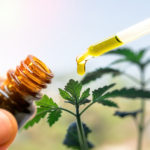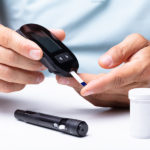By Bonnie Jenkins, Advanced Natural Wellness
As much as we would like to go through life without going under the knife, most of us find ourselves facing surgery at some point. Preparing for surgery demands more than just fasting the night before and signing a medical release. You’ll heal more quickly and with fewer consequences if your body is nutritionally replete before a major operation. Even with minor surgical procedures, wound healing can be delayed if the body isn’t nutritionally prepared. For most people undergoing elective surgery, eating a balanced whole foods diet and taking a high quality multivitamin/mineral is probably sufficient before your procedure. Stopping vitamin E and most herbal supplements one to two weeks before surgery is also smart since some of these can cause excessive bleeding. After surgery, however, it’s a different story.
Surgery Increases Calorie and Protein Needs
Surgery increases your calorie and protein needs by 20 to 50 percent. Getting extra protein is especially important because the body needs it to make immune cells and antibodies, to reduce inflammation and to mend the wound at the site of incision. Without enough dietary protein the body must make its own by breaking down muscle and organ tissue, sapping immunity. As a result, poor nutrition can delay recovery and increase the likelihood of a wound infection, pneumonia or a urinary tract infection.
Request Healthy Contraband
Of course, that doesn’t mean you should order up a lean hunk of steak for the first meal after surgery. The diet immediately after surgery should be lighter than normal because your body is unable to properly digest fatty or processed food. But, instead of the typical fare most hospitals provide—bouillon, Jello, coffee and colas—see if your hospital can give you protein or nutrient drinks, vegetable and meat broths, fresh juices, light soups, antioxidant-rich pureed fruits and vegetables, and green tea. If your hospital is unable or unwilling to provide these alternatives, try to get family and friends bring you healthy contraband.
But a recovering body needs more than just a healthy diet. Surgery can have a major impact on your immune system. Not only are your nutritional reserves tapped to help repair tissue and fend off infection, Spanish researchers have found that general anesthesia can temporarily lower T-cell activity. What’s more, pre- and post-surgery X-rays and CAT scans can deplete antioxidant stores. And certain drugs, particularly antibiotics, can suppress immunity.
Vitamin C and Zinc
All nutrients are important, but the two key nutrients that boost immune function and speed surgical wound healing are vitamin C and zinc. Taking 2,000 mg. of Vitamin C helps the body make collagen, a protein that’s necessary to mend and strengthen the surgical incision. It’s also needed to prevent infection.
The World's Quickest Solution for Ending Prostate and Urinary Misery
This has recently been revealed to be one of the only real breakthroughs in prostate health.
The seeds of a strange fruit (sometimes called "Chinese Apples") hold powerful phytonutrients that are a revolution in prostate health.
In fact, UCLA and Veterans Administration research have now proved this to be true.
Not only that, but it may be the worlds quickest solution for ending prostate misery.
Simply stated, these phytonutrients represent a huge step beyond beta sitosterol, saw palmetto, and other phytosterols alone.
Simply click HERE if you want to have fast prostate relief...restful, uninterrupted sleep...no more constant "urges to go"...enhanced virility...and optimal prostate support for life.
Adequate stores of zinc are necessary to nudge the cell growth needed for tissue repair. However, too much zinc can interfere with copper absorption and, ironically, weaken immune function. Taking just 15 mg. of zinc daily should be enough to enhance immunity without affecting copper levels.
Glutamine and Arginine
Supplementing with glutamine and arginine can also boost immunity in non-critical patients. One comparative study of these amino acids found that patients who took glutamine had significantly shorter hospital stays, while arginine supplementation improved the level of albumin, the proteins found in blood serum. Earlier research indicates that both glutamine and arginine help post-surgical patients maintain their immune function and reduce the incidence of infection. Most health professionals recommend taking 1,500 to 3,000 mg. of glutamine in a divided dose daily and 1,000 mg. of arginine each day.
Making sure your body has these much-needed nutritional building blocks after surgery will help it repair itself faster. You might even be amazed at how quickly the right macronutrients, vitamins and amino acids put you on the road to recovery!
References:
Blee TH, Cogbill TH, Lambert PJ. “Hemmorrhage associated with vitamin C deficiency in surgical patients.” Surgery. 2002; 131:408-412.
Nezu R, Rakagi Y, Ito T, et al. “The importance of total parenteral nutrition-associated tissue zinc distribution in wound healing.” Surgery Today. 1999; 29: 34-41.
Van Stijn MF, et al. Antioxidant-enriched enteral nutrition and immuno-inflammatory response after major gastrointestinal tract surgery. British Journal of Nutrition. 2009 Oct 9:1-5. [Epub ahead of print]






